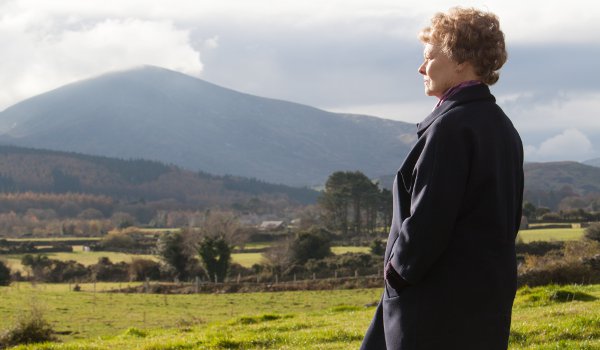Following the launch of the Philomena Project, a call on the Irish Government to release thousands of forced adoption files, The Irish Post shines a light on victims of the shocking practice in Britain.
A GRIEVING daughter has spoken out about her late mum’s nightmare search for a child she lost to forced adoption.
Anne Quinn’s first daughter was given away to strangers from the US by nuns at one of Ireland’s brutal homes for unmarried mothers.
But when the “haunted” woman finally overcame the shame she felt and tried to track down her long-lost child, the 85-year-old discovered the shocking lack of support for women like her.
“The challenges we faced meant that mum died without ever getting the chance to say sorry,” said Eileen Quinn, Anne’s London-based daughter.
“She just wanted to apologise for letting Theresa, her first child, be sent away.
"But trying to get any information about her was like looking for a needle in a haystack. We had to beg the Irish health service to find the adoption papers and there was just nobody there to help us before it was too late for mum to say goodbye.”
Ms Quinn’s comments come just weeks after the launch of a major campaign aimed at pressuring the Irish Government to release more than 60,000 files on forced adoptions to help reunite families.
Ms Quinn began a race against time in September 2012 after her elderly mother broke down and revealed she had a child during her teenage years in rural Ireland.
“Mum told me she worried all her life that I would judge her if I found out,” Eileen said. “When her parents found out she was pregnant, they just got rid of her and told her never to come back. That was why she had always wanted to take her secret to the grave.”
Ms Quinn added that she was shocked to hear her mother’s heart-breaking story, which mirrors that of Oscar-nominated film Philomena.
“But then things flashed in front of me that suddenly made sense, like why mum had been unhappy all her life and suffered from depression,” she explained. “I think she was disturbed by what happened to her.”
Anne, who moved to Britain after Theresa was given away at a mother and baby home in Tipperary, then asked Eileen to help track down her first daughter.
But after spending hundreds of hours on research and desperately contacting more than 100 people looking for help, she discovered the challenges that would leave her mother’s final wish unfulfilled.
 Anne Quinn's story mirrored that of Oscar-nominated film Philomena
Anne Quinn's story mirrored that of Oscar-nominated film PhilomenaMs Quinn said she tried everyone from people blogging about forced adoption to US First Lady Michelle Obama in her attempt to find her half-sister.
But she encountered particular difficulty with Ireland’s health service.
The HSE holds the records of adoptions from Sean Ross Abbey, the institution in which both Mrs Quinn and Philomena Lee were incarcerated.
“They told me that all the records were lying in boxes and not indexed,” Ms Quinn said.
“It was just a team of volunteers and one part-time social worker looking through thousands of names written by the nuns on paper, with nothing fully detailed and some information missing.”
She added: “Even though they gave mum priority because of her age it still took around six months and constant begging to get the record.”
But once the record was finally found, Ms Quinn said her mother was left disappointed by the HSE’s refusal to tell her where in the US Theresa had been sent.
She died months later, last July, having never had the chance to say goodbye to her daughter.
Ms Quinn is now backing The Philomena Project, a campaign calling on the Irish Government to release tens of thousands of files relating to forced adoptions and give extra support to mothers who want to track down their natural children.
Campaigners claim that Irish law currently prevents either mothers or children from being given information they could use to track down one another.
“These records need to be computerised and money needs to be put into this project,” Ms Quinn said.
“There needs to be an approved State-run agency and named people that would help people like me and my mum with the tracking process.”
She added: “It is vital for the Government and the Church to help people who want to find their relations, rather than forcing them to beg for help from disorganised little groups.
“My mum just wanted to say goodbye and it is just so sad she did not get the chance. If I could have done this quicker, then mum may have gone over to the US to see her daughter one last time.”

